Table of Contents
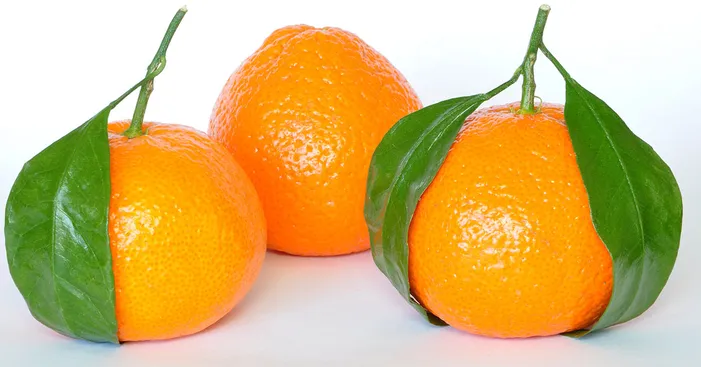
Calamondin, also known as calamondin, is a small, sour citrus fruit that is native to Southeast Asia.
It is known for its tart flavor and refreshing aroma.
Calamondins are a good source of vitamin C, potassium, and antioxidants, and have been shown to have several health benefits.
In this blog post, we will discuss some of the key health benefits of calamondin.
We will also explore how to incorporate calamondins into your diet and lifestyle.
General facts about calamondin:
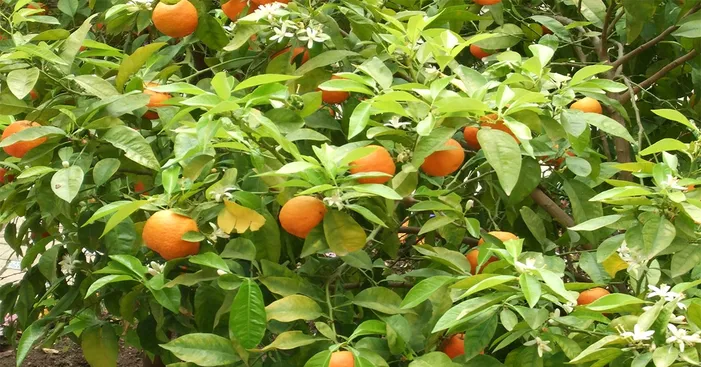
Calamondin overview:
Calamondin juice is a sour citrus juice made from the caramansi fruit.
Also known as golden lime, caramentine, or Philippine lime, the caramansi fruit is a hybrid of orange and yellow kumquats that is widely cultivated in Southeast Asia, particularly the Philippines.
Calamondin juice is rich in vitamin C, antioxidants, potassium, vitamin A, and calcium.
It is thought to have multiple health benefits, including boosting the immune system, fighting inflammation, and aiding in weight loss.
Despite its sour taste, many people consume calamondin juice regularly for its health benefits.
It can be enjoyed on its own or added to food and drinks.
Calamondin for decoration:
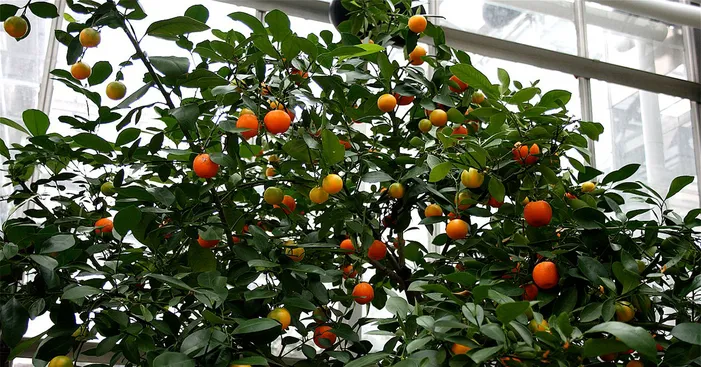
The calamondin tree is a popular ornamental plant in Europe, even though its fruits are edible and used in Asian cuisine.
It has a fragrant, remontant bloom and small, round, colorful fruits that remain on the tree for a long time.
The tree flowers and fruits all year round, make it a beautiful addition to any home.
The calamondin tree has dark green, glossy leaves that contrast nicely with its orange-yellow fruits.
It is well-suited to pot cultivation, as it can tolerate the hot, dry atmosphere of winter apartments.
However, it is not always possible to grow it outdoors, as it is sensitive to frost.
Calamondin nutritional values and health benefits:
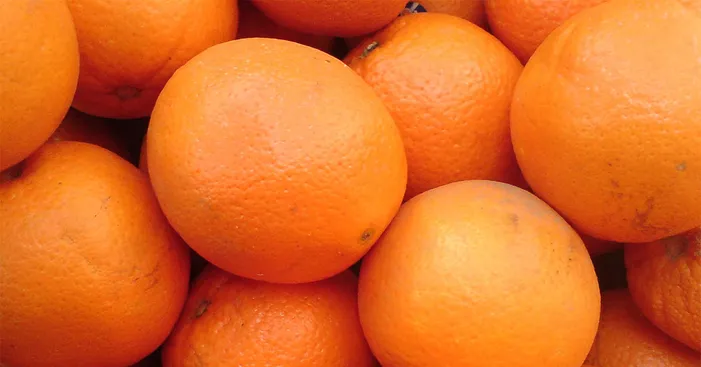
Nutritional values:
A medium-sized calamondin is a nutritional powerhouse, packed with vitamin C, potassium, calcium, and fiber.
It also has a low-calorie count and is a good source of vitamin A.
Calamondins are a citrus fruit that is known for their high vitamin C content.
They also contain other important nutrients, such as potassium, calcium, and fiber.
A medium-sized calamondin has only 12 calories, making it a healthy snack option.
Here is a breakdown of the nutrients in a medium-sized calamondin:
- Water: 15.5 g
- Calories: 12
- Vitamin A: 57.4 IU
- Vitamin C: 7.3 mg
- Potassium: 37 mg
- Calcium: 8.4 mg
- Fiber: 1.2 g
As you can see, calamondins are a nutrient-rich fruit that can be enjoyed as part of a healthy diet.
Health benefits:
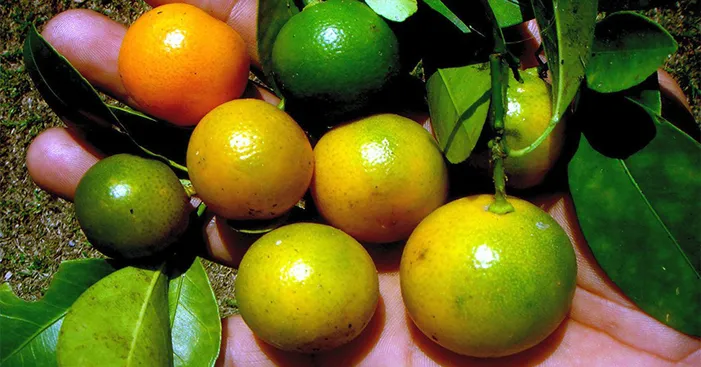
Promotes collagen production:
Calamondin are a good source of vitamin C, which is essential for collagen production.
Collagen is a protein that gives skin strength and elasticity.
As we age, collagen production decreases, which can lead to wrinkles and other signs of aging.
Calamondin can help to slow down this process by providing the body with the vitamin C it needs to produce collagen.
Helps lose weight:
To maintain normal blood pressure levels, it is important to avoid frequent consumption of sodium and increase your intake of potassium.
Sodium can cause blood vessels to constrict, while potassium relaxes them.
Calamondin are a good source of potassium, which has the important vasodilating benefit of loosening blood vessels, resulting in lower blood pressure.
In fact, according to a study, a high intake of potassium increases your protection against high blood pressure by 20%.
Help prevent kidney stones:
Calamondins contain citric acid, which helps dissolve kidney stones.
Citric acid also helps prevent the formation of kidney stones by making the urine more acidic.
This makes it harder for calcium to crystallize and form stones.
Drinking plenty of Calamondin water can help eliminate kidney stones and other waste products from the body.
Strengthens teeth:
Lemon juice is a good source of calcium and phosphorus, which are essential minerals for strong teeth and gums.
It can also help remove plaque and stains from teeth, which can cause bad breath and cavities.
To use lemon juice as a mouthwash or toothpaste, simply mix it with water and gargle or brush your teeth with it twice a day.
Detoxifies the body:
Calamondin have diuretic properties, which means they help the body eliminate toxins, excess water, and salt.
Drinking calamondin juice with water or green tea can help cleanse the kidneys, liver, and colon, and boost metabolism.
Lowers blood pressure:
Calamondin juice is a good source of potassium, which is a mineral that helps regulate blood pressure and heart rate.
Potassium also helps prevent water retention and bloating.
Drinking calamondin juice can help relax blood vessels and reduce stress, both of which can contribute to high blood pressure.
Improves hair health:
Calamondin juice can help improve hair health in a few ways.
It can remove excess oil and dandruff, which can make hair look and feel dull and unhealthy.
It can also provide natural highlights to hair by bleaching some strands.
To use calamondin juice for hair, simply rinse your hair with lemon water or spray it with lemon juice before exposing it to the sun.
Triggers natural hair color:
Calamondin juice has a whitening effect that can help remove dirt and chemicals that cause dull, dry hair.
It can also be used to create natural highlights in hair.
To use calamondin juice to trigger natural hair color, simply apply it to your hair and leave it to dry under the sun.
Detoxify the body:
Calamondin juice has a diuretic effect, which means it helps to increase urine output.
This helps to flush out toxins and excess fluids from the body.
Calamondin juice also contains glutathione, an antioxidant that helps to neutralize free radicals and protect liver cells.
This can help to improve liver function and promote detoxification.
Regulate blood sugar levels:
Calamondin have a low glycemic index, which means they don’t cause a rapid rise or fall in blood sugar levels.
This can be beneficial for people with diabetes or those who are trying to control their blood sugar levels.
Calamondin can also help to improve insulin sensitivity, the body’s ability to use glucose for energy.
This can help to prevent spikes and crashes in blood sugar levels.
Cleanse the eyes:
Calamondin have anti-inflammatory properties that can help to reduce eye inflammation and redness.
This can be helpful for people who suffer from allergies, dry eyes, or other eye conditions.
You can use calamondin juice as an eye drop or eye wash twice a day to see the benefits.
Precautions before you consume calamondin:

Calamondin juice is a popular drink in many parts of the world, known for its refreshing taste and its many health benefits.
However, it is important to be aware of the potential risks of drinking too much calamondin juice, especially if you have certain health conditions.
Stomach problems:
Calamondin juice is astringent, which means it can dry out the tissues in your body.
This can cause stomach problems in people with sensitive stomachs, such as acid reflux, diarrhea, and stomach cramps.
If you have a sensitive stomach, it is best to drink calamondin juice in moderation.
Kidney problems:
Calamondin juice is a diuretic, which means it makes you pee more.
This can be a good thing if you are trying to detoxify your body, but it can also be a problem for people with kidney problems.
Too much calamondin juice can put a strain on your kidneys and even worsen your condition.
If you have kidney problems, it is best to avoid calamondin juice altogether.
Using calamondin:
Calamondin jus
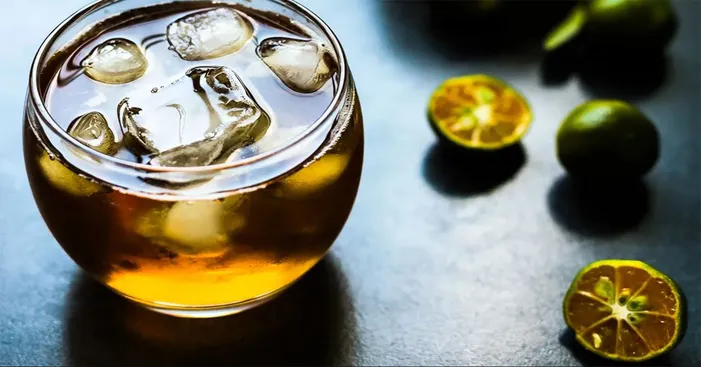
Ingredients:
- 70 pieces of caramansi (calamondin)
- Raw honey, to taste
- Benzoic acid, 1/4 teaspoon per 4 1/2 cups of caramansi juice
Preparation:
- Rinse the calamondin fruit and cut it in half crosswise.
Squeeze the juice from the fruit into a bowl. - Strain the juice to remove the seeds.
Add raw honey to taste. - For every 4 1/2 cups of calamondin juice, add 1/4 teaspoon of benzoic acid.
Stir well. - Heat the juice over medium heat until it comes to a boil.
Stir continuously for 5 minutes. - Remove the juice from the heat and pour it into a clean, sterilized bottle.
- Cap the bottle tightly.
Place the bottle in a large pot of water and bring the water to a boil. - Boil the bottle for 20 minutes.
- Remove the bottle from the pot of water and let it cool completely.
Once the bottle is cool, store it in a cool, dark place.
Thai Mojito:

This refreshing and exotic cocktail is a twist on the classic mojito.
It’s made with rum, lime, mint, calamondins, orange juice, and brown sugar.
The result is a delicious and flavorful drink that is perfect for a hot day.
Ingredients:
- 50ml rum
- 4 lime wedges
- 15 mint leaves
- 3 calamondins
- 50ml orange juice
- 2 teaspoons brown sugar
Preparation:
- Muddle the lime wedges, mint leaves, and brown sugar in a cocktail shaker.
- Add the rum, calamondins, and orange juice.
- Fill the shaker with ice and shake until well combined.
- Strain the mixture into a tall glass filled with crushed ice.
- Garnish with a lime wedge and a mint sprig.
Storing calamondin:
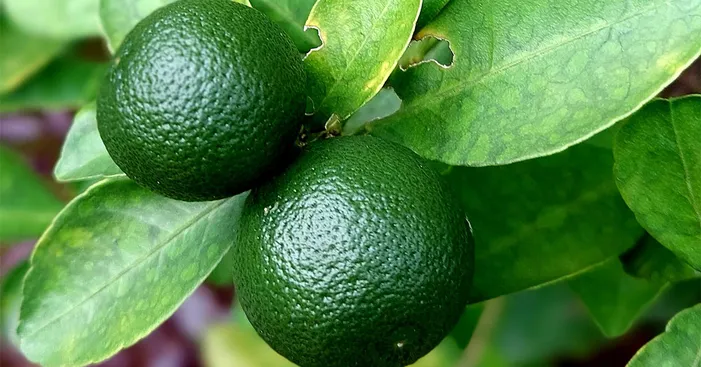
But yes, calamondin fruit can freeze if we have an unusually cold outbreak in early December.
And even though calamondin is considerably more resistant to the cold than an orange or grapefruit, calamondin fruits are relatively small, so they will freeze more quickly than the larger fruits of oranges and grapefruits.
Avoid storing juice in glass bottles, as light will break it down more quickly.
Instead, store it in a plastic or non-transparent glass container.
It will last about 2-3 days in the refrigerator.
Buying calamondin:
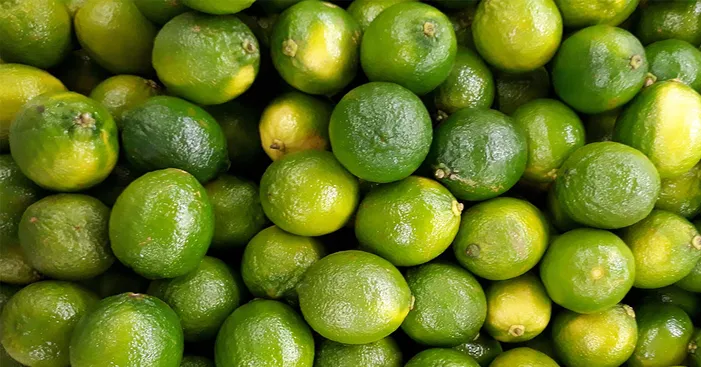
Size and shape: Calamondin fruits should be small and round, with smooth skin.
Avoid fruits that are bruised, misshapen, or have soft spots.
- Color: The skin of a ripe calamondin fruit should be bright yellow.
If the fruit is green, it is not yet ripe. - Scent: Calamondin fruits should have a strong, citrusy scent.
If the fruit does not have a strong scent, it may not be fresh. - Firmness: Calamondin fruits should be firm to the touch.
If the fruit is soft, it is overripe. - Price: Calamondin fruits are typically inexpensive.
If you find a fruit that is significantly cheaper than the others, it may not be fresh.
